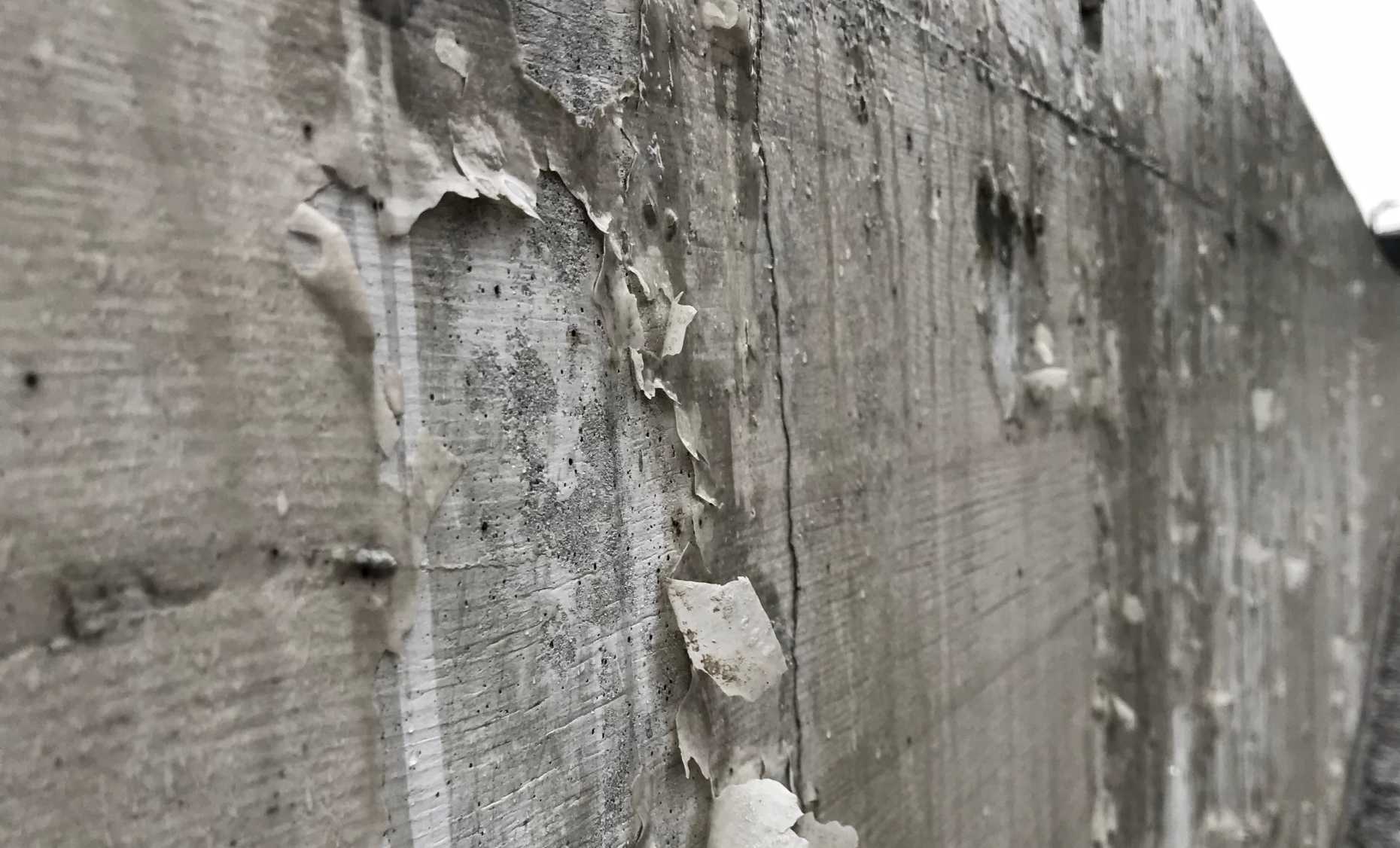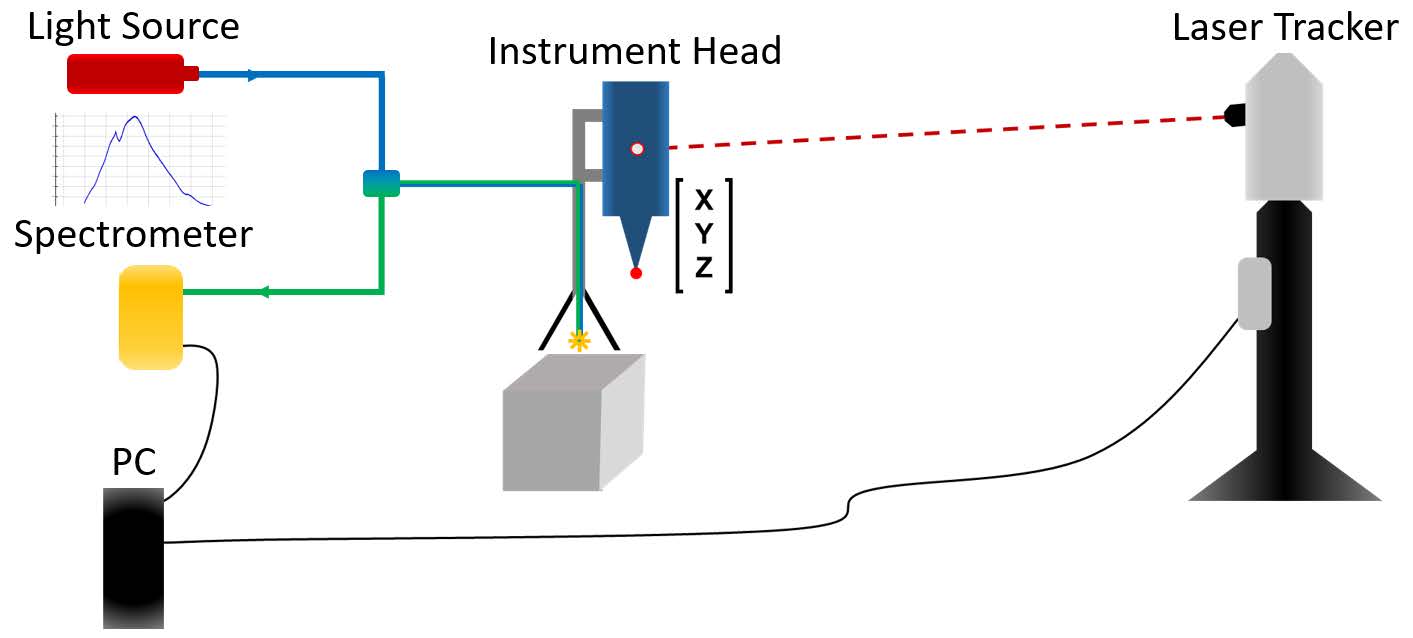Condition assessment of reinforced concrete structures with VIS-NIR spectroscopy
Responsible: Patrick Pfändler, Nicholas Meyer, Dr. David Salido Monzú
Collaborations: Prof. Dr. A. Wieser, GSEG (Geosensors and Engineering Geodesy), D-BAUG at ETH Zurich

Background
In order to increase the lifetime of reinforced concrete structures different coatings and surface treatments can be applied. Hydrophobic surface treatments are a widely used preventive measure to limit ingress of moisture and chlorides into the concrete. However, hydrophobic coatings have a lifetime of about 10 to 15 years, during which they gradually degrade depending on exposure and environmental conditions (UV-light, moisture etc.). A method to rapidly test the quality of such surface treatments on-site does currently not exist but would be of high value for the assessment and for the decision when to replace the treatments.
Aims and objectives
The aim was to study the potential use of visible/near-infrared (VIS-NIR) reflectance spectroscopy as non-destructive method for contactless material testing in civil engineering applications, in particular the quality of hydrophobic surface treatments for concrete.
Methodology
During previous projects, a handheld probe had been customized to acquire spectral reflectance measurements in a controlled manner, which also can be on-site spatially referenced with high accuracy using a laser tracker. The light backscattered from an actively illuminated surface was analyzed to derive spectral reflectance data, which can be then applied to identify the reflecting material or to estimate certain material properties related to its composition or state.
The last development was an upgrade to usage of two spectrometers for different ranges of the wave lengths for more detailed information combined with a dynamic integration time. After the registration and preprocessing steps, the spectra were analyzed with the help of an artificial neural network (ANN) in order to predict if on the surface the hydrophobic agent is present or not.
